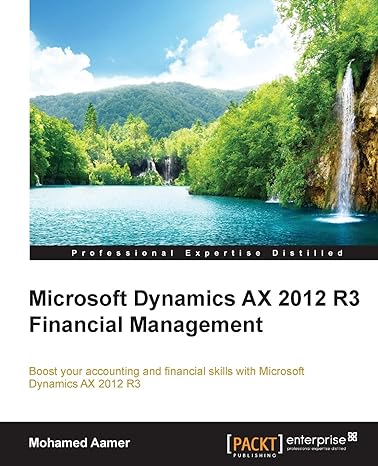Answered step by step
Verified Expert Solution
Question
1 Approved Answer
e 1: 5 10 3 Question 42 (2 points) Administrative tribunals establish a legal framework by which both federal and provincial governments can regulate their
e 1: 5 10 3 Question 42 (2 points) Administrative tribunals establish a legal framework by which both federal and provincial governments can regulate their corporate citizens. (True or False?) Administrative tribunal decisions are subject to review and can be appealed if its decision is patently unreasonable. True False Question 43 (2 points) In General Motors v City National Leasing, the plaintiff relied on a federal statute to limit interest rate payments. (True or False?) One of the central inquiries of the court in this case was the constitutionality of the Combines Investigation Act. True False Question 44 (2 points) There are various alternatives to litigation available to businesspersons to resolve commercial disputes. 13 Cage 1: 5 N B 9 Nevane Qiao: Attempt 1 6 a Question 44 (2 points) There are various alternatives to litigation available to businesspersons to resolve commercial disputes. (True or False?) Those alternatives are: 1) negotiation; 2) mediation; and 3) arbitration and binding arbitration. True False Question 45 (2 points) Solicitor-client privilege is one of the different privileges enjoyed, protecting the confidential communications between a lawyer and her client. (True or False?) This privilege is one of the highest privileges set out in the law of evidence and is only waived with few exceptions. True False Question 46 (2 points) Civil and criminal proceedings have different burdens of proof. 5 6 B 9 3 31 Question 46 (2 points) Civil and criminal proceedings have different burdens of proof. (True or False?) The criminal standard is beyond a reasonable doubt and the civil standard is on a balance of probabilities. True False Question 47 (2 points) In Ontario, a discovery plan must be in writing and be prepared in accordance with the rules of civil procedure. (True or False?) One such rule is that litigants can demand any document (as defined by the statute), whether it relates to the issues in litigation or not. True False Question 48 (2 points) Every Canadian has the right not to be arbitrarily detained by any state authority True or False? Time Limit: 2:00:00 Time Left:1:15:37 Page 1: 3 16 23 5 6 8 9 13 Respondus LockDown Browser + Webcam Zhengyang Clan: Attempt 1 Question 48 (2 points) Every Canadian has the right not to be arbitrarily detained by any state authority. (True or False?) This right is enshrined in Section 9 of the Charter of Rights and Freedoms. True False Question 49 (2 points) The Federal government's constitutional powers are set out in Section 91 of the Canadian Constitution. (True or False?) The Federal trade and commerce powers may at times infringe with provincial powers over private/civil matters. True False Question 50 (2 points) The Supreme Court of Canada is a bilingual court and must have regional representation. (True or False?) Only judges appointed from Quebec are required to be bilingual
Step by Step Solution
There are 3 Steps involved in it
Step: 1

Get Instant Access to Expert-Tailored Solutions
See step-by-step solutions with expert insights and AI powered tools for academic success
Step: 2

Step: 3

Ace Your Homework with AI
Get the answers you need in no time with our AI-driven, step-by-step assistance
Get Started


